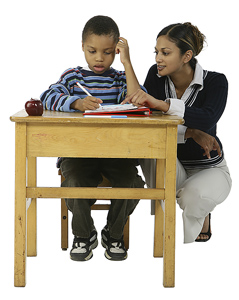 Response-Ability
Response-Ability
One way to look at responsibility is to write it this way: response-ability. Responsibility is the ability to make responses. Students who see only one response to a certain situation have limited response-ability. They are not able to make many responses.
Students who sense more choice in a situation are more likely to come out winners. They have a greater repertoire of potential behaviors from which to choose.
The students who see a limited numbe r of responses, or who always respond the same way to a situation, end up as losers. Students who perceive only one response to a situation have little responsibility. They are immobilized by their limited awareness of choices.
r of responses, or who always respond the same way to a situation, end up as losers. Students who perceive only one response to a situation have little responsibility. They are immobilized by their limited awareness of choices.
One of the most important roles of those who work with students is to help them see the choices available to them. If students are not aware of a choice, they have no choice. Part of effective classroom management is helping students see meaningful alternatives to their behavior. It is a way of inviting them to be responsible.
If an eight-year-old boy is on the playground and another child grabs his red hat and runs away with it, the eight-year-old has a choice of several behaviors:
- he can run after the offender calling names
- ignore the offender
- tell an adult
- persuade other students to help him
- take something of the offender’s
- wait until later and share his feelings with the offender
- write a note, sit down and cry
- or respond with any number of other possible behaviors.
These choices are available to him only if he is aware that they exist.
One of the mistakes educators often make is assuming that students perceive all the choices. It is not always so. Many times students see only one response to a situation and choose that same response over and over again, even though it seldom works.
If you tell the student not to wear his hat outside, you solve the fighting problem, but he loses power. He doesn’t get an opportunity to try out new behaviors. Using the STAR Technique, you can help this student perceive other choices, teach him new skills to deal with the situation, and let him choose again. In that way, he increases his response-ability and his sense of personal power.
More Key Information
